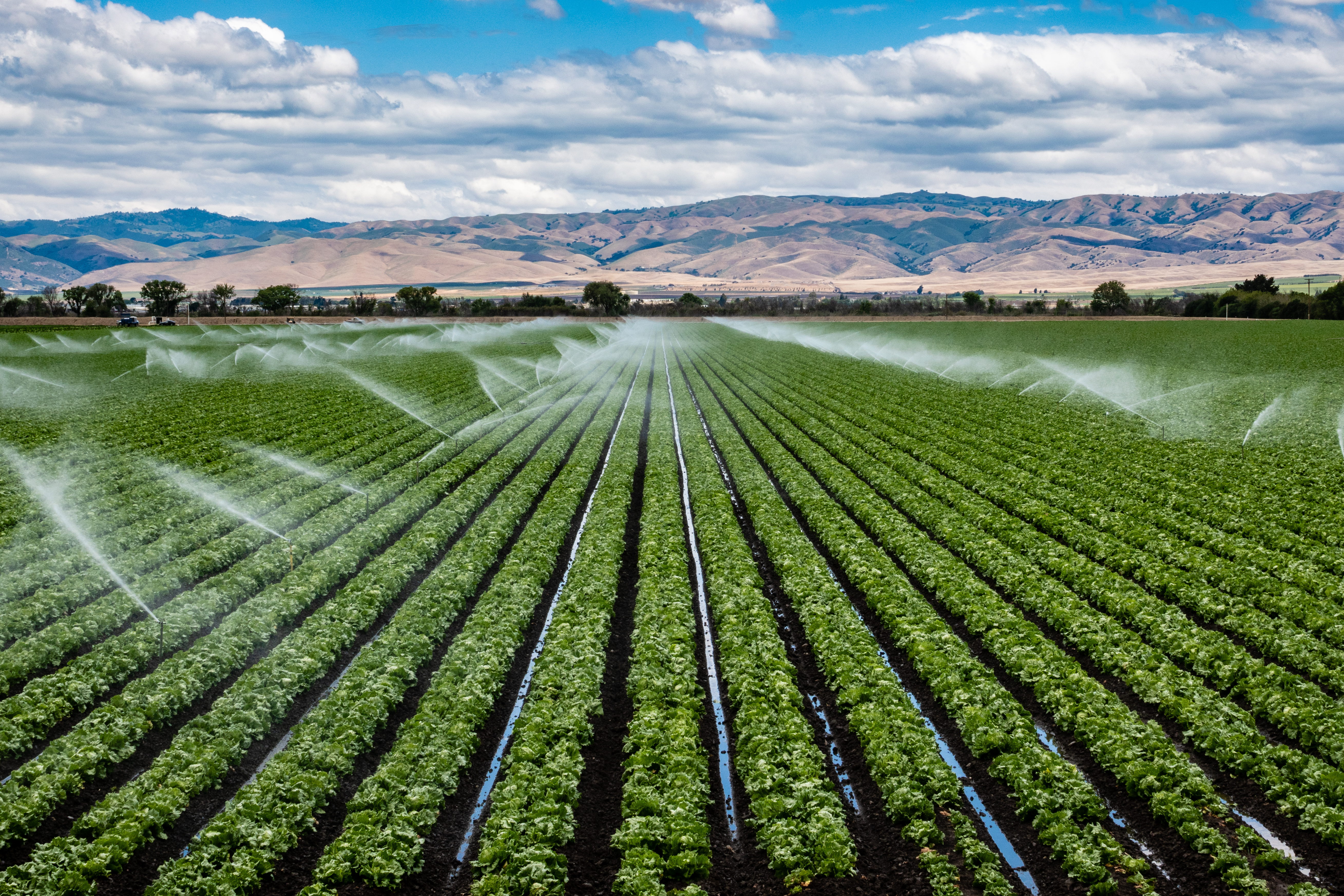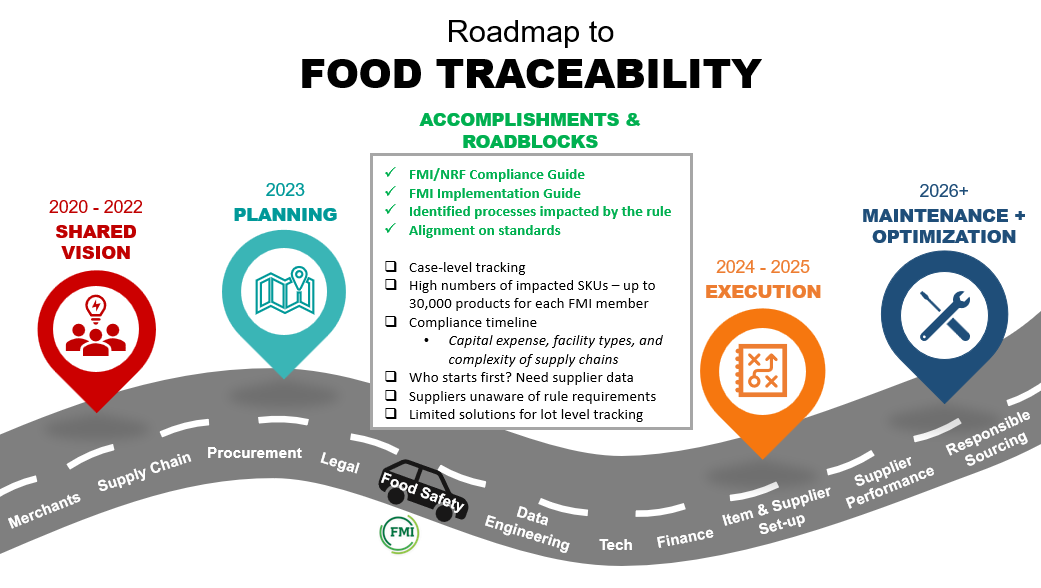By: Adam Friedlander, Specialist, Food Safety and Technical Services, Food Marketing Institute

If you’re having a frozen pizza for dinner tonight, you’re likely eating ingredients from several continents. Throughout the grocery store, finished products frequently contain multiple ingredients that are domestically and internationally sourced. On a pizza, the tomatoes, cheese, flour, spices, mushrooms, peppers, pineapples and salami are sourced from around the world, so food retailers must rely on their suppliers’ recordkeeping documents to confirm food safety. Although emerging traceability technologies are advancing database management capabilities, these technologies add little value to traceability programs unless all supply chain partners harmonize data collection approaches.
If any ingredients or products are implicated in an outbreak, food retailers and producers work with regulatory agencies, epidemiologists and business partners to accurately determine the source of contamination and quickly remove these contaminated products from store shelves. Therefore, the entire food chain must be equipped with detailed records for each ingredient shipped into their store in order to effectively trace products and reduce the burden of foodborne illness.
While the food community works hard to collect detailed records, there is opportunity to improve communication and collaboration between all stakeholders. Inconsistent and insufficient recordkeeping standards used throughout the global supply chain make traceback investigations difficult to solve. Some of these challenges include:
- Undocumented critical tracking events (CTEs) and key data elements (KDEs) within bulk product shipments;
- Co-mingled and co-packed lots;
- Inconsistent code labels;
- Varying documentation systems; and
- Inadequate recordkeeping training protocols.
FMI hosted a webinar, in conjunction with the Global Food Traceability Center (GFTC) titled “Traceability in a Global Food System” to help our members better understand the social, economic and geographic impact of food traceability programs. A key takeaway was learning about the various tools available to help the entire food industry determine their return on investment (ROI) when implementing comprehensive traceability programs. Participants in the GFTC cite improved operational efficiency and risk mitigation as outcomes in developing traceability programs, including reduced recall costs, liability reduction, improved supply chain confidence and a decline of food waste.
To protect public health, food retailers and producers must take a leadership role and spearhead the development of harmonized food traceability programs. By standardizing data collection methodologies, all business partners need to implement strong food traceability systems that can more rapidly and accurately identify contaminated products in the global supply chain. FMI members are committed to creating efficient traceability programs that improve consumer trust and reduce the global burden of foodborne illness.
For more information on the importance of food traceability, visit the FMI Traceability FAQ for Retailers, FMI Traceability Backgrounder and Benefits of Traceability Beyond Food Safety.

 Industry Topics address your specific area of expertise with resources, reports, events and more.
Industry Topics address your specific area of expertise with resources, reports, events and more.
 Our Research covers consumer behavior and retail operation benchmarks so you can make informed business decisions.
Our Research covers consumer behavior and retail operation benchmarks so you can make informed business decisions.
 Events and Education including online and in-person help you advance your food retail career.
Events and Education including online and in-person help you advance your food retail career.
 Food Safety training, resources and guidance that help you create a company food safety culture.
Food Safety training, resources and guidance that help you create a company food safety culture.
 Government Affairs work — federal and state — on the latest food industry policy, regulatory and legislative issues.
Government Affairs work — federal and state — on the latest food industry policy, regulatory and legislative issues.
 Get Involved. From industry awards to newsletters and committees, these resources help you take advantage of your membership.
Get Involved. From industry awards to newsletters and committees, these resources help you take advantage of your membership.
 Best practices, guidance documents, infographics, signage and more for the food industry on the COVID-19 pandemic.
Best practices, guidance documents, infographics, signage and more for the food industry on the COVID-19 pandemic.
